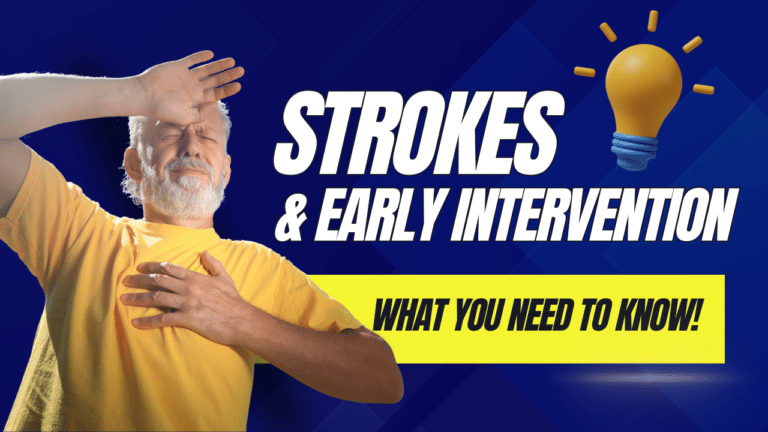The relationship between mental health and cardiovascular wellness represents one of the most significant yet underrecognized factors in heart disease prevention and management. While most people understand that diet, exercise, and genetics influence heart health, fewer realize that stress, anxiety, and depression can be just as damaging to the cardiovascular system as high cholesterol or smoking. This heart-mind connection operates through complex biological pathways that link emotional states directly to physical heart function, creating a two-way relationship where mental health affects heart health and vice versa.
Understanding this connection is crucial for anyone seeking comprehensive cardiovascular wellness, as traditional approaches that focus solely on physical risk factors may miss critical psychological contributors to heart disease. Modern research reveals that chronic stress and mental health disorders can trigger measurable changes in blood pressure, heart rhythm, and inflammation levels, making mental wellness an essential component of heart disease prevention. By recognizing these connections, individuals can take a more holistic approach to cardiovascular care that addresses both physical and emotional health.
Walk-In Lab’s comprehensive cardiovascular testing provides valuable tools for monitoring the physical effects of stress and mental health on heart function, enabling individuals to track important biomarkers and work with healthcare providers to develop integrated treatment approaches that support both mental and cardiovascular wellness.
How Stress Impacts the Heart
Stress creates immediate and long-term effects on cardiovascular function through multiple biological pathways that can significantly increase heart disease risk over time. When the body perceives stress, it activates ancient survival mechanisms that prepare for “fight or flight” responses, triggering a cascade of hormonal and physiological changes designed for short-term survival but potentially harmful when activated chronically.
The immediate stress response involves the release of stress hormones including cortisol and adrenaline, which rapidly increase blood pressure, heart rate, and inflammation throughout the cardiovascular system. These hormones cause blood vessels to constrict, forcing the heart to work harder to maintain adequate circulation. While these changes are protective during acute emergencies, chronic activation creates sustained cardiovascular strain that can damage blood vessels and heart muscle over time.
Chronic stress contributes to arterial stiffness and endothelial dysfunction, impairing the blood vessels’ ability to dilate and contract properly in response to changing demands. This vascular dysfunction represents an early stage of cardiovascular disease that can progress to atherosclerosis, hypertension, and increased risk of heart attacks and strokes. The inflammatory response triggered by chronic stress also promotes the formation of arterial plaques that can rupture and cause acute cardiovascular events.
Stress can trigger cardiac events such as arrhythmias and myocardial ischemia even without typical chest pain symptoms, making stress-related heart problems particularly dangerous because they may go unrecognized. These “silent” cardiac events can cause significant heart damage without obvious warning signs, emphasizing the importance of stress management and regular cardiovascular monitoring for individuals experiencing chronic psychological stress.
Mental Health Disorders and Cardiovascular Risk
Depression, anxiety, and other mental health conditions create specific cardiovascular risks that extend far beyond the general effects of stress, involving distinct biological mechanisms that directly increase heart disease susceptibility. These conditions affect millions of Americans and represent major but often overlooked cardiovascular risk factors that can be as significant as traditional risks like high cholesterol or diabetes.
Depression and anxiety disorders are associated with increased inflammation and oxidative stress throughout the cardiovascular system, creating cellular damage that accelerates atherosclerosis and increases heart attack risk. These conditions also reduce heart rate variability, a measure of the heart’s ability to adapt to changing demands that serves as an important indicator of cardiovascular health and autonomic nervous system function.
Mental health disorders significantly increase the incidence of coronary artery disease and atrial fibrillation through both direct biological effects and indirect behavioral factors such as poor medication adherence, unhealthy lifestyle choices, and delayed medical care seeking. Individuals with depression are nearly twice as likely to develop heart disease compared to those without depression, while anxiety disorders increase the risk of cardiac events by 26% according to large-scale studies.
The relationship between emotional states and cardiac events demonstrates remarkable specificity in recent research. Negative emotions such as anger and sadness can trigger cardiac events, while positive emotions have been shown to reduce atrial fibrillation recurrence by up to 85%. This finding highlights the protective power of emotional well-being and suggests that interventions focusing on positive mental health may provide significant cardiovascular benefits beyond simply reducing negative emotions.
The Science Behind the Connection
The biological mechanisms linking mental health to cardiovascular function involve complex interactions between the nervous system, immune system, and endocrine system that create measurable physical changes throughout the body. Understanding these pathways helps explain why psychological interventions can produce tangible improvements in cardiovascular health and guides the development of integrated treatment approaches.
Sympathetic nervous system activation represents a primary pathway through which stress and mental health disorders affect heart function. When activated by psychological stress, this system releases norepinephrine and other neurotransmitters that increase heart rate, blood pressure, and cardiac contractility while reducing blood flow to non-essential organs. Chronic activation of this system contributes to hypertension, arrhythmias, and accelerated atherosclerosis.
Immune dysregulation and increased production of inflammatory cytokines including interleukin-6 (IL-6) and C-reactive protein (CRP) create direct links between mental stress and cardiovascular disease. These inflammatory markers damage blood vessel walls, promote plaque formation, and increase the risk of plaque rupture that leads to heart attacks and strokes. Chronic inflammation also impairs the heart’s electrical conduction system, contributing to arrhythmias and sudden cardiac death risk.
Neurological mechanisms involve direct brain-heart signaling during stress and emotional regulation, with specific brain regions that process emotions sending signals that affect heart rhythm and function. Advanced imaging studies show that mental stress activates brain areas involved in emotion regulation while simultaneously causing changes in cardiac blood flow and electrical activity. These findings demonstrate that the heart-mind connection involves direct neural pathways rather than simply indirect effects through behavior or lifestyle factors.
Recognizing Stress-Related Heart Symptoms
Stress-related cardiovascular symptoms can be subtle and easily attributed to other causes, making recognition challenging but critically important for early intervention and prevention of more serious cardiac events. These symptoms often develop gradually and may fluctuate with stress levels, creating patterns that can help identify the connection between psychological state and cardiovascular function.
Palpitations and irregular heartbeat represent common manifestations of stress-related cardiac effects, often described as the heart “racing,” “skipping beats,” or “fluttering.” These sensations may occur during stressful situations or appear unexpectedly when stress levels are elevated. While occasional palpitations are usually harmless, persistent or frequent episodes warrant medical evaluation to rule out underlying arrhythmias or other cardiac conditions.
Unexplained chest tightness or discomfort that doesn’t fit typical heart attack patterns can signal stress-related cardiac effects. This discomfort may feel like pressure, squeezing, or aching in the chest area and often occurs without the radiating pain typically associated with coronary artery disease. The symptoms may worsen during periods of high stress and improve when stress is reduced.
Blood pressure spikes without obvious physical exertion can indicate stress-related cardiovascular effects, particularly when they occur during emotionally challenging situations or periods of high psychological stress. These episodes may be accompanied by headaches, dizziness, or feelings of anxiety. Regular blood pressure monitoring can help identify patterns and guide treatment decisions.
Persistent fatigue, sleep disruption, and reduced exercise tolerance may reflect the cardiovascular impact of chronic stress and mental health conditions. These symptoms often develop gradually and may be dismissed as normal consequences of busy lifestyles, but they can indicate significant cardiovascular strain that requires attention and intervention.
Managing Stress for a Healthier Heart
Effective stress management represents one of the most powerful tools for protecting cardiovascular health, with evidence-based interventions that can measurably improve heart function and reduce disease risk. The key lies in adopting comprehensive approaches that address both acute stress responses and long-term resilience building, creating sustainable lifestyle changes that support both mental and cardiovascular wellness.
Lifestyle strategies including mindfulness meditation, yoga, deep breathing exercises, and regular physical activity provide proven benefits for both stress reduction and cardiovascular health. Mindfulness practices help regulate the nervous system’s stress response, reducing cortisol levels and improving heart rate variability. Regular aerobic exercise not only strengthens the cardiovascular system directly but also serves as a powerful stress-reduction tool that improves mood and resilience.
Professional interventions including psychotherapy, cognitive-behavioral therapy (CBT), and medications when necessary can provide essential support for individuals with clinical depression, anxiety disorders, or chronic stress conditions. These interventions address the root causes of psychological distress while providing tools for managing stress responses more effectively. Studies show that successful treatment of depression and anxiety can produce measurable improvements in cardiovascular risk markers.
Sleep quality and balanced nutrition play crucial roles in managing stress and supporting cardiovascular health. Adequate sleep helps regulate stress hormones and supports heart rhythm stability, while a heart-healthy diet rich in anti-inflammatory foods can help counteract some of the cardiovascular effects of chronic stress. Limiting caffeine, alcohol, and processed foods while emphasizing fruits, vegetables, whole grains, and lean proteins supports both mental and cardiovascular wellness.
Regular cardiovascular screening through Walk-In Lab testing enables individuals to monitor the physical effects of stress on their heart health and track improvements as stress management interventions take effect. Testing for cholesterol levels, inflammatory markers, blood pressure patterns, and other cardiovascular risk factors provides objective measures of how stress management efforts are affecting overall heart health and guides treatment adjustments when necessary.
Frequently Asked Questions
How does stress affect the heart long term?
Chronic stress leads to sustained elevation of stress hormones that increase blood pressure, promote inflammation, and contribute to arterial stiffness and atherosclerosis. Over time, these changes can result in hypertension, arrhythmias, increased risk of heart attacks and strokes, and accelerated cardiovascular aging. The cumulative effects of chronic stress can be as damaging to the cardiovascular system as traditional risk factors like high cholesterol or smoking.
Can mental health disorders cause heart disease?
Mental health conditions including depression and anxiety significantly increase cardiovascular disease risk through multiple pathways. These disorders promote inflammation, reduce heart rate variability, increase blood pressure, and often lead to behaviors that further increase heart disease risk such as smoking, poor diet, and medication non-adherence. Research shows that individuals with depression have nearly twice the risk of developing heart disease compared to those without depression.
What are early signs of stress-related heart issues?
Early signs include palpitations or irregular heartbeat, unexplained chest tightness or discomfort, blood pressure spikes during stressful situations, persistent fatigue, sleep disruption, and reduced exercise tolerance. These symptoms may fluctuate with stress levels and often improve during periods of relaxation or vacation. Anyone experiencing persistent or concerning symptoms should seek medical evaluation.
Does improving mental health improve heart health?
Improving mental health through stress management, treatment of depression and anxiety, and positive lifestyle changes can produce measurable improvements in cardiovascular function. Studies show that successful mental health interventions can reduce inflammation, improve heart rate variability, lower blood pressure, and decrease the risk of cardiac events. The benefits often appear within weeks to months of beginning effective treatment.
What tests help evaluate stress impact on the heart?
Blood pressure monitoring, heart rate variability testing, cholesterol panels, inflammatory markers such as C-reactive protein, and stress hormone levels can help assess the cardiovascular impact of chronic stress. Additional testing might include electrocardiograms to detect arrhythmias, echocardiograms to assess heart function, and exercise stress tests to evaluate cardiovascular fitness. Walk-In Lab offers convenient access to many of these important cardiovascular screening tests.
How quickly can stress management improve heart health?
Some benefits of stress management can appear within days to weeks, including improved blood pressure, better sleep, and reduced palpitations. Longer-term benefits such as reduced inflammation, improved heart rate variability, and decreased cardiovascular event risk typically develop over months of consistent stress management practice. The key is maintaining sustainable stress reduction strategies rather than expecting immediate dramatic changes.
Conclusion
The heart-mind connection represents a critical but often overlooked aspect of cardiovascular health that deserves equal attention alongside traditional risk factors like cholesterol, blood pressure, and family history. Understanding how stress, anxiety, and depression directly impact heart function empowers individuals to take comprehensive approaches to cardiovascular wellness that address both physical and emotional health needs.
The scientific evidence clearly demonstrates that chronic stress and mental health disorders create measurable cardiovascular risks through complex biological pathways involving inflammation, nervous system activation, and hormonal changes. These effects are not simply theoretical concerns but translate into real increases in heart attack, stroke, and arrhythmia risks that can be as significant as traditional cardiovascular risk factors.
The encouraging news is that effective stress management and mental health treatment can produce tangible improvements in cardiovascular function and reduce heart disease risk. Through combination approaches that include lifestyle modifications, professional interventions when needed, and regular monitoring of cardiovascular health markers, individuals can protect both their mental and heart health simultaneously.
Take a proactive approach to your cardiovascular wellness by ordering a comprehensive Heart Health Panel from Walk-In Lab today. Regular monitoring of cholesterol, inflammatory markers, and other cardiovascular risk factors can help you track the effects of stress on your heart and measure the benefits of stress management interventions. Your mental and cardiovascular health are intimately connected – make the commitment to protect both through integrated, holistic care.
Medical Disclaimer: This article is for informational purposes only and is not a substitute for professional medical advice, diagnosis, or treatment. Always consult with qualified healthcare providers regarding questions about your mental health, cardiovascular health, and any concerning symptoms. If you are experiencing a mental health crisis or thoughts of self-harm, contact emergency services or a crisis helpline immediately.





